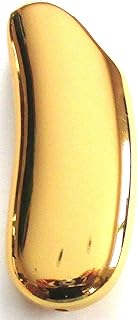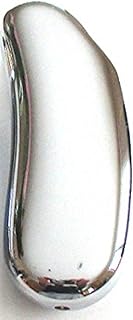BIC Lighters vs. Other Lighter Brands: A Detailed Comparison
While BIC lighters are undeniably ubiquitous and popular, there are several other brands that offer a diverse range of features and qualities. Let's break down the pros and cons of BIC against other popular lighter brands:
BIC Lighters:
Pros:
* Affordability: BIC lighters are known for their low price, making them a very accessible option.
* Reliability: They are generally reliable, with a simple design and proven performance.
* Availability: BIC lighters are widely available in most convenience stores and supermarkets.
* Durability: They are known for their sturdy construction, making them relatively resistant to drops and bumps.
* Consistent Flame: BIC lighters offer a consistent flame, which is ideal for consistent lighting.
Cons:
* Limited Options: BIC offers only a few basic designs and lacks customizable features.
* Lack of Wind Resistance: They are not particularly wind-resistant, making them less suitable for outdoor use.
* Environmental Impact: The use of disposable lighters contributes to waste and environmental pollution.
* Limited Flame Adjustment: Most BIC lighters lack adjustable flame settings, limiting versatility.
Other Lighter Brands:
1. Zippo Lighters:
Pros:
* Iconic Design: Zippo lighters are instantly recognizable and hold nostalgic value.
* Wind Resistance: Zippo lighters are known for their windproof design, making them ideal for outdoor use.
* Durable Construction: Zippo lighters are built to last and can be easily repaired.
* Customizable: They offer a wide range of designs and finishes, allowing for personalization.
* Refillable: Zippo lighters are refillable, reducing waste and promoting sustainability.
Cons:
* Higher Price: Zippo lighters are more expensive than BIC lighters.
* Bulkier Size: They are larger and bulkier than BIC lighters, making them less convenient for carrying.
* Fuel Handling: Refillable lighters require careful handling of lighter fluid.
2. Clipper Lighters:
Pros:
* Durable: Clipper lighters are known for their high quality and durability.
* Refillable: They are refillable, reducing waste and promoting sustainability.
* Adjustable Flame: Clipper lighters offer adjustable flame settings for different needs.
* Interesting Designs: Clipper lighters feature unique designs and collaborations with artists.
* Wind Resistant: They are reasonably wind-resistant, making them suitable for outdoor use.
Cons:
* Higher Price: Clipper lighters are more expensive than BIC lighters.
* Fuel Handling: Refillable lighters require careful handling of lighter fluid.
3. Ronson Lighters:
Pros:
* Long History: Ronson lighters have a long and rich history, with a reputation for quality.
* Variety of Designs: They offer a wide range of designs and styles, catering to different tastes.
* Refillable: Ronson lighters are refillable, promoting sustainability.
* Durable: They are known for their durable construction.
Cons:
* Higher Price: Ronson lighters are more expensive than BIC lighters.
* Not Widely Available: Ronson lighters may be less readily available than other brands.
4. S.T. Dupont Lighters:
Pros:
* Luxury and Prestige: Dupont lighters are considered luxury items, known for their craftsmanship and high quality.
* Unique Designs: They offer a wide range of intricate and elegant designs.
* Refillable: Dupont lighters are refillable, promoting sustainability.
* Durable: They are built to last and offer a high level of durability.
Cons:
* High Price: Dupont lighters are significantly more expensive than other brands.
* More Fragile: While durable, they may be more susceptible to damage than other brands.
Conclusion:
Ultimately, the best lighter brand for you depends on your individual needs and preferences.
* For affordability and basic functionality, BIC lighters are a reliable option.
* For wind resistance and durability, Zippo lighters are a popular choice.
* For reliability, adjustable flame, and unique designs, Clipper lighters are a good alternative.
* For luxury, craftsmanship, and prestige, S.T. Dupont lighters are the ultimate choice.
Consider your budget, desired features, and intended use before making your decision.


